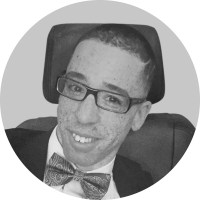Change, Not Charity: The Unsung Battle for Disability Rights

Change, Not Charity: The Unsung Battle for Disability Rights
The journey toward the Americans with Disabilities Act (ADA) was a decades-long struggle, far removed from the "pity" often associated with disability in public perception. As highlighted in the powerful documentary "Change, Not Charity," this landmark legislation was born from the relentless efforts of disability activists who fought for civil rights, not charity.
For years, people with disabilities faced widespread societal segregation and discrimination. The prevailing "pity" model, exemplified by telethons, was deeply resented by activists who saw it as equating disability with "total hopelessness" [04:04]. This sentiment fueled a deep desire to be seen as equals, not as objects of pity.
The historical context is critical, including the dark shadow of the Eugenics movement and "ugly laws" [06:44] that normalized the institutionalization of disabled individuals. A turning point arrived with Geraldo Rivera's 1972 exposé of the horrifying conditions at the Willbrook State School [07:47], which brought the issue into the national spotlight.
Out of this awakening emerged the Independent Living Movement, spearheaded by disabled college students in Berkeley, California, who formed the Center for Independent Living (CIL) [08:46]. This movement fostered a new vision of empowerment, with influential figures like Judy Heumann, Mary Lou Breslin, and Pat Wright leading the charge against discriminatory practices [09:35].
A significant legislative step was Section 504 of the Rehabilitation Act of 1973, which prohibited discrimination against individuals with disabilities in federally funded institutions [11:22]. However, the delayed implementation of this section led to the historic 1977 sit-in at the Department of Health, Education, and Welfare (HEW) headquarters in San Francisco [14:04]. This month-long, non-violent occupation, notably supported by the Black Panthers, ultimately forced the signing of the 504 regulations [15:26].
Despite this victory, the fight was far from over. Legal setbacks and attempts to roll back regulations under the Reagan administration underscored the urgent need for comprehensive civil rights legislation [19:40]. The Disability Rights Education and Defense Fund (DREDF) was established to champion such a bill [21:55]. Figures like Evan Kemp and Justin Dart traveled across the country, meticulously documenting discrimination, which solidified the vision for the Americans with Disabilities Act (ADA) [23:33].
The movement grew increasingly militant, with groups like ADAPT (American Disabled for Accessible Public Transit) engaging in mighty acts of civil disobedience, including chaining themselves to buses [29:39]. The Gallaudet University protest in 1988 [30:37], where deaf students successfully demanded a deaf president, further showcased the undeniable power of collective action.
A defining moment was the "Capital Crawl" in March 1990 [41:05], where activists, in a dramatic display, dragged themselves up the steps of the U.S. Capitol, symbolizing the physical and societal barriers they faced. This powerful demonstration, coupled with the occupation of the Capitol Rotunda, pressured Congress to act [43:22]. The ADA, a testament to bipartisan effort championed by Senator Tom Harkin and Representative Steny Hoyer, was passed by overwhelming votes in both the Senate and the House [47:40].
The ADA was signed into law by President George H.W. Bush on July 26, 1990 [48:01], marking a significant milestone in civil rights history. While a considerable triumph, the documentary reminds us that the ADA is a "floor, not the ceiling" [50:36]. Challenges persist, including high unemployment rates for disabled adults and restrictive financial policies, highlighting the ongoing need for advocacy and progress.
What part of the disability rights movement highlighted in this video resonates most with you, and what further changes do you believe are still needed to achieve full inclusion and equity for people with disabilities?
Categories
- All Categories
- What is Research at Open like?
- 2 What would you like to research?
- How can Open improve our community research?
- 16 Open Community (Open to All)
- 7 Welcome and Introductions
- 6 Coffee Lounge
- 1 Competitions and special offers
- 1 Open Community Help and Support
- My Community Groups
- 429 My Life's Discussions
- 42 Workplace and Employment
- 42 Education and Skills Development
- 29 Entertainment At Home
- 24 Entertainment Out and About
- 47 Travel and Transport
- 15 Built Environment - Access to Buildings and Urban Spaces
- 22 Fitness, Sports and Adventure
- 9 Cooking, Eating and Nutrition
- 13 Arts, Music and Crafts
- 22 Fashion and Beauty
- 22 Home and Daily Basics
- 6 Relationships and Sex
- 34 News and Current Affairs
- 10 Banking and Finance
- 24 Policy and Legislation
- 30 Healthcare
- 13 Shopping
- 5 Housing
- 7 Suggest a new discussion
- Education and Training Opportunities